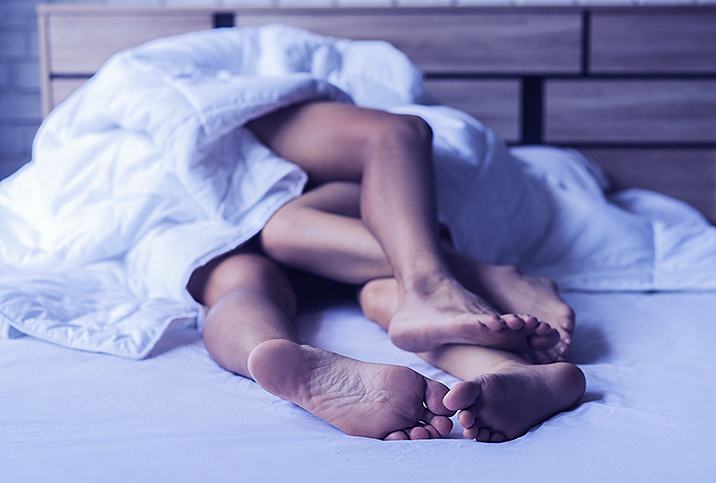Improving Insomnia: Tips, Treatments and Healthy Bedtime Routines

Struggling with chronic insomnia? Discover how various treatments and lifestyle changes can improve your sleep quality, as studies suggest up to 60 percent of Americans face this daunting sleep disorder. While there are numerous causes, insomnia can be improved with a range of treatments and lifestyle changes.
An overview of insomnia
Insomnia is a persistent difficulty in falling or staying asleep, or in obtaining quality sleep (despite opportunities for normal rest), leading to daytime impairment. When it occurs at least three times a week for three months or more, insomnia is considered to be chronic.
The condition is not a one-size-fits-all proposition. Sleep-onset insomnia, or difficulty falling asleep, is most common in individuals who struggle to relax, have racing thoughts before bed or suffer from jet lag. Sleep-maintenance insomnia, or difficulty staying asleep, is common in older people and people with sleep apnea.
Insomnia often results from hyperarousal of various kinds:
- Consumption of alcohol, tobacco and caffeine
- Certain medications
- Health problems, such as chronic pain, frequent urination, restless leg syndrome and heart and lung diseases
- Behavioral and mental health disorders
Unhealthy habits and poor bedtime routines often contribute. Risk factors for insomnia include being female (hormonal shifts play a role) or older than age 60; having a mental health disorder, medical condition or an irregular schedule; and feeling under significant pressure.
Insomnia can cause serious stress about sleep and getting to sleep, which compounds the issue; excessive fatigue; decreased concentration, memory and performance; aggression; increased risk of depression, anxiety and substance abuse; as well as hypertension and heart disease.
Treatment
Insomnia can be treated with medications (your doctor will know which one is best), cognitive behavioral therapy, stimulus control therapy, light therapy, relaxation techniques and sleep restriction. There are also alternative medications (melatonin, valerian) and alternative treatments such as acupuncture, tai chi, yoga and meditation. Talk to your doctor about a treatment plan that works for you.
A healthy bedtime routine
A healthy bedtime routine, also known as sleep hygiene, is essential for everyone. Creating a consistent evening routine helps signal to your body when it's time to wind down and get ready for bed. This routine could include reading, meditating, taking a warm bath, picking out your clothes for the next day or, likely, a combination of a number of activities. This helps you stay on track and sets you up for success, so when you slip into bed, your body and brain are both ready to get some zzzs.
Tips for falling and staying asleep
Certain behavioral changes can significantly help. One important practice is to wake up and go to sleep at the same time each day—including weekends—so your body gets into a rhythm. You can also try the following practices for good sleep health:
- Avoid the phone, TV, laptop and other electronics an hour before bed.
- Minimize caffeine, alcohol and tobacco after 4 p.m., and avoid late-night meals and snacks.
- Research shows exercise during the day can help you fall asleep at night.
- Avoid any activity in your bedroom that isn't sleeping (or sex). Make your bedroom your sanctuary: quiet, dark and calming.
- Choose quality bedding to keep you comfortable and cool.
- Use a noise machine, sleep story or app. They have helped millions of people. A fan can create a peaceful noise and cool breeze that may help you drift off.
- Don't stare at the clock. If you can't sleep, get up and do something for 30 minutes—a lot of people resort to reading—and then try again.
If you are experiencing chronic insomnia despite practicing good sleep health practices, your doctor can do a number of things: rule out any medical causes, review your medications to see if they may be contributing, recommend treatments or refer you to a sleep specialist.
Making the best of a lousy night's sleep
While there's no substitute for sleep, you can optimize your day. Take a cold shower to wake up. A walk outside can be extremely refreshing. Breathe deeply or try a quick meditation session to increase your body's oxygen level. Practice some yoga or have a calming mint tea, and speaking of fluids, stay hydrated. Eat nourishing foods for energy throughout the day.
Get in a quick power nap—20 to 30 minutes is good, but no longer—if you can. Do not sleep all day, even if your schedule allows, as this will only disrupt your circadian rhythm more. Go to bed at a reasonable but slightly earlier time to help your body catch up.
Not every suggestion works for everyone, but there is an impressive array of options. Don't give up on finding your peaceful night's sleep.


















